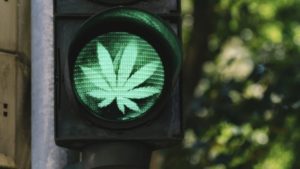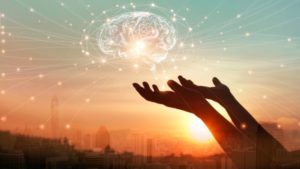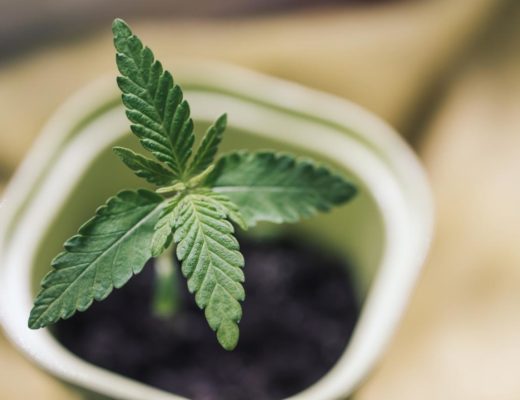Since the early 1900s, when cannabis began to gain popularity, the plant has been a highly debated topic. While there are many legitimate concerns when utilizing cannabis for recreational and medical purposes, most opposing voices have had alternative motives.
As cannabis becomes more accessible, it is vital to differentiate between genuine side effects and misinformation, especially regarding your mental health.
In this post, we cover how cannabis affects mental health. However, the topic is extremely complex. You must have a basic understanding of the history of cannabis misinformation and the different compounds to know how it can affect your mental health.
To gain a comprehensive perspective on the subject of cannabis, we discuss:
- History of Cannabis Propaganda
- Different Cannabinoids
- How Cannabis Interacts with Our Brain
- Severe Mental Health Conditions and Cannabis Use
 The History of Cannabis Propaganda
The History of Cannabis Propaganda
Efforts to delegitimize cannabis have been ongoing since the 1910s. The most significant push is referred to as reefer madness; the campaign presented the plant as a dangerous drug that literally makes users go insane.
Propagandists took the misinformation a step further, suggesting that the drug made minorities increasingly violent, and the plant threatened white America’s way of life.
Since the beginning of cannabis propaganda, the opposition has used mental health to polarize the population that hasn’t used marijuana. Cannabis prohibition began to take shape at the 1925 League of Nations’ 2nd Opium Conference, where the Egyptian delegate claimed that 30-60% of victims of insanity were caused by cannabis consumption, without any evidence, of course. Shortly after the conference, most western countries instituted nationwide bans on cannabis.
Today the bias still exists. The overwhelming majority of cannabis research is done analyzing the adverse side effects rather than potential health benefits of the plant.
 Efforts to Stop Legalization
Efforts to Stop Legalization
Most cannabis misinformation stems from industries severely impacted by legal marijuana for recreational or medicinal purposes. The propaganda was so effective because the US government was entirely on board. One of the most egregious examples is the relationship between the first commissioner of the FBI, Harry Anslinger, and businessman William Randolph Hearst.
As the owner of a printing company, Hearst’s business was directly threatened by hemp. He used his connections, resources, and newspapers to spread misinformation about cannabis and psychosis. His links to Anslinger, who is quoted saying marijuana leads to “insanity, criminality, and death,” directly led to cannabis prohibition.
While cannabis is winning the information war, state-sponsored propaganda has severe effects today. There are legitimate concerns regarding cannabis and mental health, but it’s nearly impossible for the average consumer to trust governments with a history of promoting false information.
Now that we have legal recreational programs in 18 states and access is increasing, the need for accurate information is more critical than ever.
Major Cannabis Compounds
Understanding the different compounds and how they affect the brain helps us cut through the noise and comprehend how cannabis can affect our mental health.
The two most significant cannabis compounds or cannabinoids are THC and CBD. Each affects our bodies in highly different ways. THC is responsible for the intoxicating effects of marijuana, while CBD gets most of the credit for cannabis’ medicinal benefits.
While THC and CBD are the most abundant cannabinoids, over 100 unique known compounds make up the plant.
 How Cannabinoids Affect Our Brains
How Cannabinoids Affect Our Brains
When we consume cannabis products, cannabinoids alter the chemical composition in our brain. THC does so by binding with CB1 and CB2 receptors and flooding the brain with dopamine.
CBD has a much different effect. The cannabinoid doesn’t directly activate receptors but inhibits degrading enzymes promoting endocannabinoid production. Experts believe that regular CBD use helps users with endocannabinoid deficiency putting their brains in a better position to handle conditions like stress, sleep disorders, anxiety, and inflammation.
The chemical composition of cannabis considerably affects how our brain responds to consumption. Different types of cannabis or strains contain varying concentrations of THC and CBD. Products with high amounts of THC create more intense psychoactive effects and are more concerning mental health issues.
Understanding the cannabinoid potency of your cannabis products is critical, especially if you are susceptible to mental health conditions.
THC and Mental Health
The most concerning cannabinoid derived from cannabis regarding mental health is THC. However, when looking at the information about THC, we have to remember there has been a coordinated campaign to delegitimize cannabis use for the past 100 years.
Many reputable sources online will report that regular cannabis use can increase anxiety, depression, psychosis, and schizophrenia. One of the most alarming findings is from the scientific article, AKT1 Gene Variations, and Psychosis.
The research found that “people who use marijuana and carry a specific variant of the AKT1 gene, which codes for an enzyme that affects dopamine signaling in the striatum, are at increased risk of developing psychosis.
The striatum is an area of the brain that becomes activated and flooded with dopamine when certain stimuli are present.” Experts believe that the gene COMT could lead to a similar reaction when carriers use excessive amounts of cannabis.
Another common belief prevalent in the scientific community is that marijuana use can worsen the side effects of users who already have schizophrenia. However, the correlation isn’t exactly rock solid.
The most significant research connecting the rare mental disorder is from Denmark. The researchers report that “in 1995, 2% of schizophrenia diagnoses in the country were associated with cannabis use disorder. In 2000, it increased to around 4%. Since 2010, that figure increased to 8%.”
Many researchers push back on the idea that we have sufficient evidence to claim that marijuana can cause or increase psychotic episodes even in people with schizophrenia. UK researchers Ian Hamilton and Mark Monaghan question the correlation in their paper, Cannabis, and Psychosis: Are We any Closer to Understanding the Relationship.
The report examines three hypothesizes commonly made in published articles, including:
- Cannabis can trigger schizophrenia in an individual who would not have developed the illness if they had not been exposed to the drug.
- Individuals with a predisposition to schizophrenia use cannabis to mitigate the prodromal symptoms of schizophrenia, referred to as reverse causation.
- Common cause suggests that other factors are responsible for the relationship, such as childhood trauma or genetics for example.
The researchers investigate each claim and identify gaps in the conclusions, most notably citing dosing and frequency issues, biological and social factors, limited sample sizes, and cannabis use with other drugs. They summarize their finding by stating, “The evidence for cannabis acting as a causal factor for schizophrenia has so far not been established. Research needs to extend beyond males drawn from western countries if we are to advance knowledge and understanding of the link between cannabis use and schizophrenia.”
As you can see, the topic is highly debated even in the scientific community. Attributing cannabis use to psychological disorders is extremely complex, primarily due to the diverse chemical composition of cannabis, the human body, and how users consume the drug.
 People Who Should Avoid THC
People Who Should Avoid THC
While our bias lies with Hamilton and Monaghan, there is enough evidence to be concerned with THC use, especially in large amounts and developing brains. Marijuana is more potent than at any point in history due to highly advanced genetic evolution and a competitive legal market. Consuming cannabis products with THC potency levels above 25% should be done with caution.
If you suffer from schizophrenia, anxiety, or depression, we recommend avoiding high THC strains and extracts.
How CBD is Used for Mental Health Issues
As we’ve mentioned, cannabis is an extremely diverse plant. Cannabis products with low THC potency levels and high concertation of CBD can have the complete inverse effects related to mental health conditions.
The most prolific research on how CBD works inversely to THC is by Ethan Russo in his paper titled Taming THC. Russo suggests that CBD can alleviate the adverse effects of THC when taken in conjunction. He states that CBD has “proven extremely versatile pharmacologically displaying the unusual ability to antagonize CB1 at a low nM level in the presence of THC, despite having little binding affinity and supporting its modulatory effect on THC-associated adverse events such as anxiety, tachycardia, hunger, and sedation in rats and humans.”
CBD products with low concentrations of THC are increasingly popular for their non-intoxicating medical benefits. While more research is needed, various studies suggest CBD can lower anxiety when taken consistently.
Final Words
Cannabis has a long, complicated history when it comes to mental health. Misinformation has plagued the industry making it difficult to differentiate viable resources from fear-mongering propaganda.
When choosing a cannabis strain or extract, be mindful of your mental health conditions and the chemical composition of your product. Cannabis is an incredible plant but isn’t for everyone. Be especially cautious when consuming strains and extracts with high THC content. Like all substances, cannabis can be abused and should be taken in moderation.





No Comments